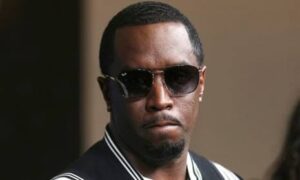Disney World apologizes for school’s ‘racist’ Indianettes performance

Walt Disney World has reportedly denounced a routine by a high school drill team that was accused of “racism” and borrowing from Native American stereotypes during a recent performance there.
Video shot March 15 of the Port Neches-Groves High School Indianettes from Texas shows the all-women squad dressed in purple with white fringe as they march and dance — seemingly borrowing from Native culture — while also chanting, “Scalp ’em, Indians, scalp ’em.”
The footage of the group, who were invited to perform in Orlando, sparked a backlash by Native American officials who called their act “dehumanizing.”
The live performance in our park did not reflect our core values, and we regret it took place,” Disney spokesperson Jacquee Wahler told Deadline in a statement.
“It was not consistent with the audition tape the school provided and we have immediately put measures in place so this is not repeated.”
Ojibwe tribal attorney Tara Houska was among those offering takedowns of the performance.
Her complaint on Twitter Thursday attracted more than 11,000 supporters who called out the “racist” performance, including other tribal community leaders — such as Kansas State Rep.
Christina Haswood, who identifies as Diné and implored Disney to “do better,” adding, “It’s ignorance at this point.”
In recent years Disney Parks has pledged to operate and develop new attractions with one guiding principle in mind: “Inclusion.” To that end, they’ve made several changes to demonstrate their dedication to the cause, such as scrapping the phrase “ladies and gentleman, boys and girls” during the “Happily Ever After” fireworks show at Magic Kingdom.
Last year, they also updated their “jaw-dropping” Jungle Cruise ride, first opened in 1955, by removing problematic depictions of religious symbols and references to indigenous societies as headhunting “savages.”
Disney’s good-faith inclusion campaign was most recently compromised by their CEO Bob Chapek, who found himself embroiled in Florida’s “Don’t Say Gay” bill debate after fans and employees — many of whom are part of the LGBTQ+ community — decried the company’s public silence on the issue.
Chapek later apologized. “You needed me to be a stronger ally in the fight for equal rights and I let you down,” he said. “I am sorry.”











